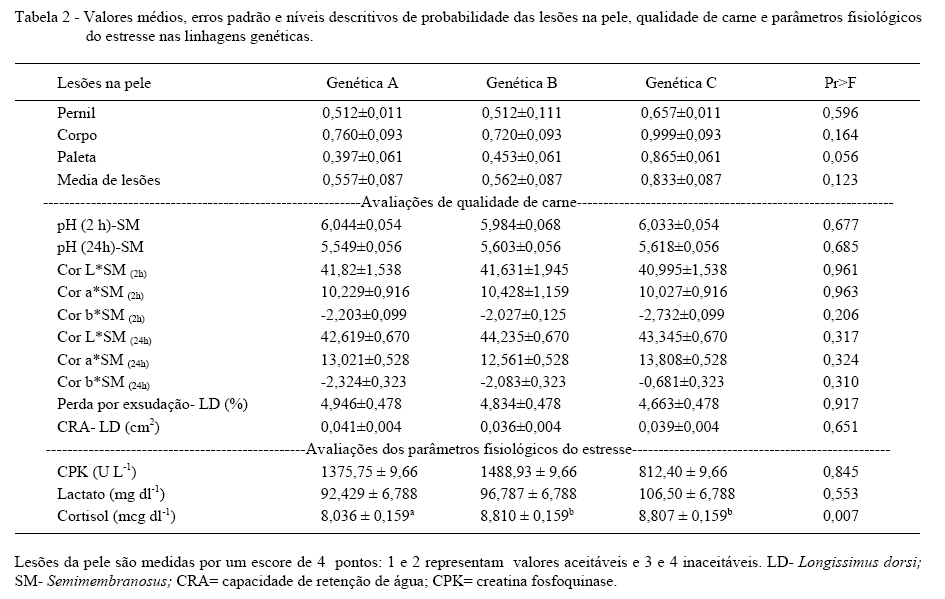The effects of the loading/unloading systems have been evaluated (S1: vehicle 1, with mobile floor and using management board for conducting pigs, S2: vehicle 2, with fixed floor and using electric goads to conduct pigs) and genetic (A, B and C) on the physiochemical characteristics of the meat, skin damage and physiological parameters of stress. 120 castrated pigs have been used (average weight 115kg) from three farms, divided into six groups (n = 20) and subjected to two types of transport vehicles. For statistical analysis the effects of blocks (assessment days) have been considered in the variance analysis model), loading/unloading systems, genetics and the engagement among the genetic lineages and vehicle models arranged in a factorial scheme (2 vehicle models x 3 genetic lineages). The average values obtained for the pH24h (5.60±0.046 and 5.57±0.046), colour*24h (41.52±1.256 and 41.21±1.486), drip loss (4.76±0.391 and 4.86±0.391), water holding capacity (0.038±0.03 and 0.039±0.003), have not shown differences between the loading and unloading systems (S1 and S2) in the genetic lineages A, B and C. The skin damage incidence on the leg, middle and shoulder haven't differed between the loading and unloading systems in the genetic lineages A, B and C. Both S1 and S2 systems have shown low stress levels and provided easiness at handling among the assessed lineages.
animal welfare; loading; meat quality; pigs; transport


